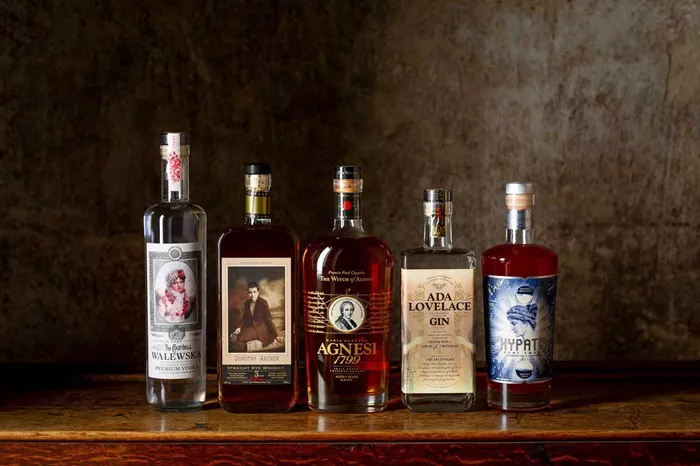Amidst the chill of winter or the onset of a seasonal cold, many turn to age-old remedies to ease their discomfort. Among these remedies, brandy and whiskey have emerged as popular choices, often praised for their purported ability to provide relief from cold symptoms. But which of these spirits is truly efficacious? Let’s delve into the depths of tradition and science to unravel the truth behind the age-old question: brandy or whiskey, which is good for cold?
Understanding the Tradition: Brandy vs. Whiskey
For centuries, both brandy and whiskey have been hailed as potent elixirs capable of alleviating various ailments, including the common cold. Brandies, derived from distilled wine, boast a rich history dating back to medieval Europe, where they were cherished for their warming properties. Whiskey, on the other hand, originates from the Gaelic word “uisce beatha,” meaning “water of life,” reflecting its esteemed status in Celtic culture. Both spirits have been lauded for their ability to soothe sore throats, alleviate congestion, and provide a comforting warmth during cold spells.
The Role of Alcohol: Mechanisms of Action
At the heart of brandy and whiskey’s purported efficacy lies their alcohol content. Alcohol acts as a vasodilator, meaning it widens blood vessels, promoting circulation and facilitating the body’s natural defenses against infection. Additionally, alcohol possesses antiseptic properties that may help to combat bacteria and viruses, potentially easing symptoms associated with respiratory illnesses. However, it’s essential to note that excessive alcohol consumption can impair immune function and exacerbate cold symptoms, underscoring the importance of moderation.
Brandy: A Time-Honored Tonic
Brandy, with its smooth, amber hues and nuanced flavors, has long been revered for its medicinal qualities. Traditionally made from grapes, brandy is aged in oak barrels, imparting it with a distinct character and depth. Proponents of brandy as a cold remedy often cite its warming effect on the body, which can provide temporary relief from the chills and aches associated with colds and flu. Furthermore, the presence of antioxidants in brandy, derived from its grape origins, may confer additional health benefits, although research in this area is ongoing.
Whiskey: A Wholesome Elixir
Whiskey enthusiasts extol the virtues of this venerable spirit, touting its therapeutic properties as a panacea for cold symptoms. Crafted from fermented grains and aged in charred oak casks, whiskey boasts a robust flavor profile characterized by notes of caramel, vanilla, and spice. Advocates of whiskey for cold relief assert that its high alcohol content can help to numb sore throats and alleviate congestion, providing much-needed respite from the discomfort of respiratory infections. Moreover, the warming sensation imparted by whiskey is often accompanied by a sense of relaxation, which can promote restful sleep and aid in the body’s recovery process.
Nutritional Benefits: Unveiling the Hidden Potency
Beyond their alcohol content, both brandy and whiskey harbor a treasure trove of compounds that may confer additional health benefits. Brandy, derived from grapes, contains polyphenols such as resveratrol, which exhibit antioxidant and anti-inflammatory properties. These compounds have been linked to a myriad of health benefits, including cardiovascular health and immune support. Similarly, whiskey contains ellagic acid, a polyphenol found in oak barrels during the aging process, which may possess anticancer properties and contribute to overall well-being. While these nutritional components are present in relatively small quantities, they add depth to the therapeutic potential of brandy and whiskey as cold remedies.
Cultural Perspectives: A Global Panacea
The reverence for brandy and whiskey as cold remedies transcends geographical boundaries, reflecting their entrenched position in diverse cultures worldwide. In Russia, a steaming mug of hot tea infused with brandy, lemon, and honey, known as “Gogol-Mogol,” is a cherished remedy for winter ailments. Similarly, in Ireland, the tradition of “hot toddies” prevails, with whiskey, honey, lemon, and spices concocted into a comforting elixir for colds and flu. Across continents and generations, brandy and whiskey have remained steadfast companions in the battle against seasonal maladies, woven into the fabric of cultural practices and medicinal folklore.
Scientific Scrutiny: Assessing the Evidence
While the anecdotal evidence supporting the use of brandy and whiskey for cold relief is abundant, scientific research on their efficacy remains limited. Studies investigating the specific effects of these spirits on cold symptoms are sparse, with much of the existing literature focusing on alcohol’s broader impact on immune function and health outcomes. While alcohol, in moderation, may confer certain benefits, excessive consumption can have detrimental effects on overall health and well-being, underscoring the importance of moderation and mindfulness when using brandy or whiskey as remedies for colds.
The Importance of Moderation and Caution
As with any medicinal remedy, moderation and caution are paramount when considering the use of brandy or whiskey for cold relief. While these spirits may provide temporary comfort and alleviate symptoms, excessive consumption can lead to adverse effects, including dehydration, impaired judgment, and addiction. Furthermore, individuals with certain medical conditions or who are taking medications should exercise caution when consuming alcohol, as it may interact with their treatment regimen or exacerbate underlying health issues. Consulting with a healthcare professional before embarking on any self-medication regimen is advisable to ensure safety and efficacy.
Conclusion: Finding Balance in Tradition and Science
In the age-old debate of brandy versus whiskey for cold relief, both spirits offer potential benefits rooted in tradition, cultural practices, and scientific inquiry. While brandy’s antioxidant properties and whiskey’s warming effect may provide temporary respite from cold symptoms, moderation and caution are essential to mitigate the risks associated with excessive alcohol consumption. Ultimately, the choice between brandy and whiskey as cold remedies is a personal one, influenced by individual preferences, cultural traditions, and health considerations. By striking a balance between tradition and science, we can harness the therapeutic potential of these spirits while safeguarding our well-being. Whether sipped neat by the fireside or infused into a steaming concoction, brandy and whiskey continue to hold sway as timeless companions in the perennial battle against the common cold.


